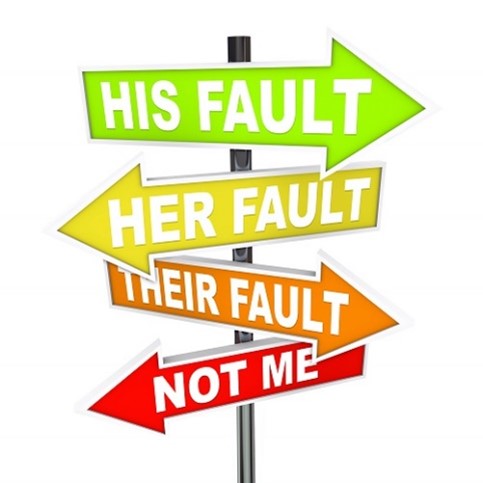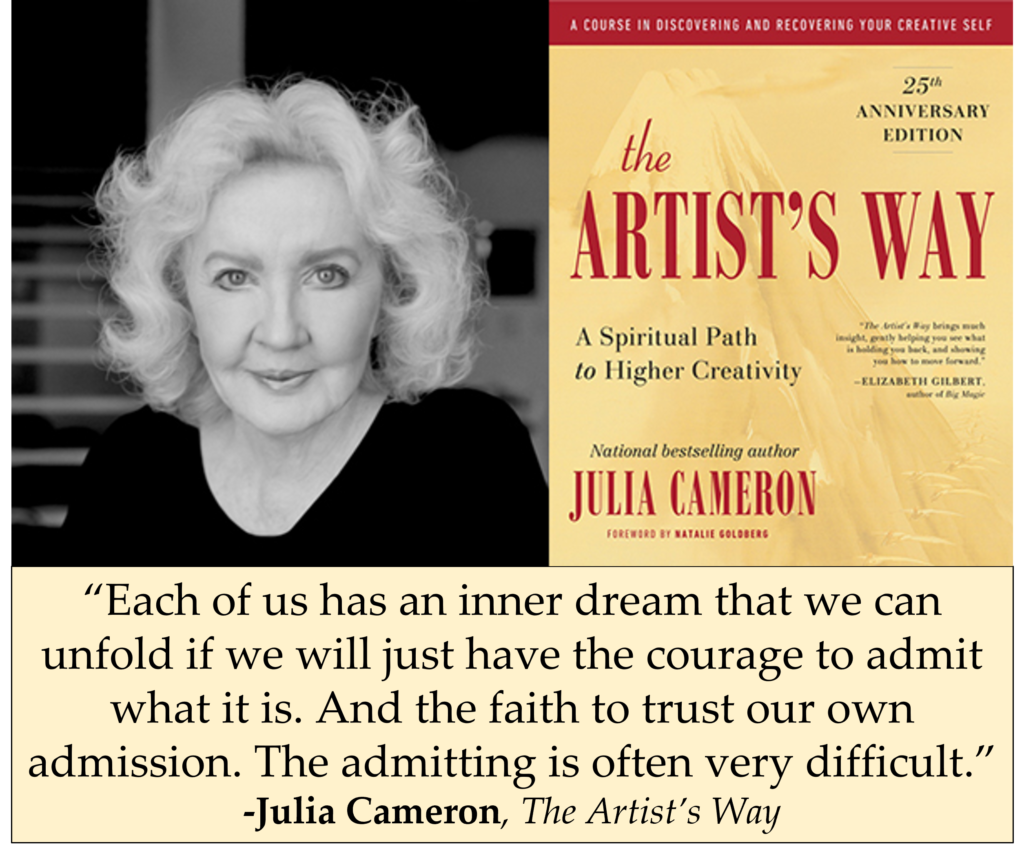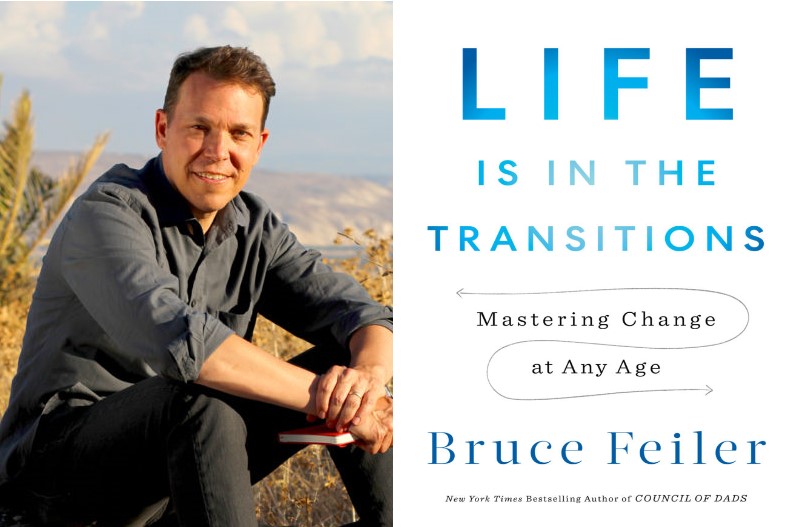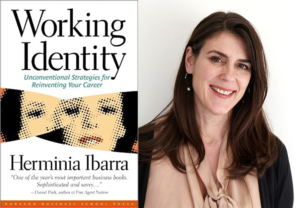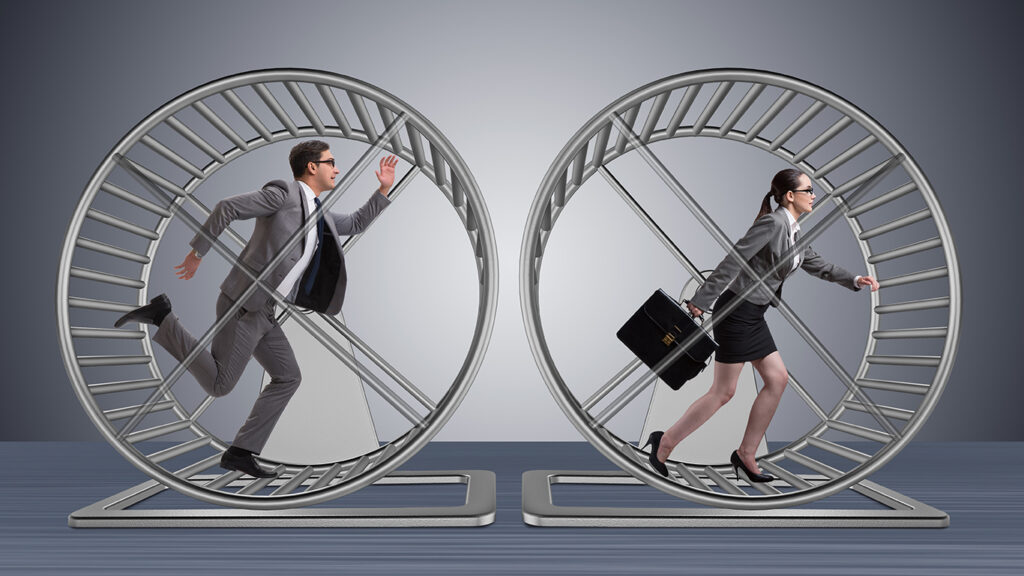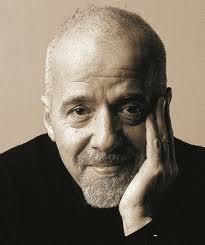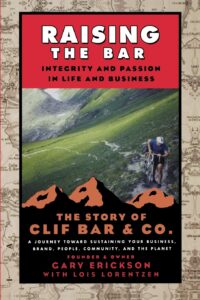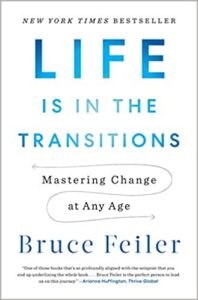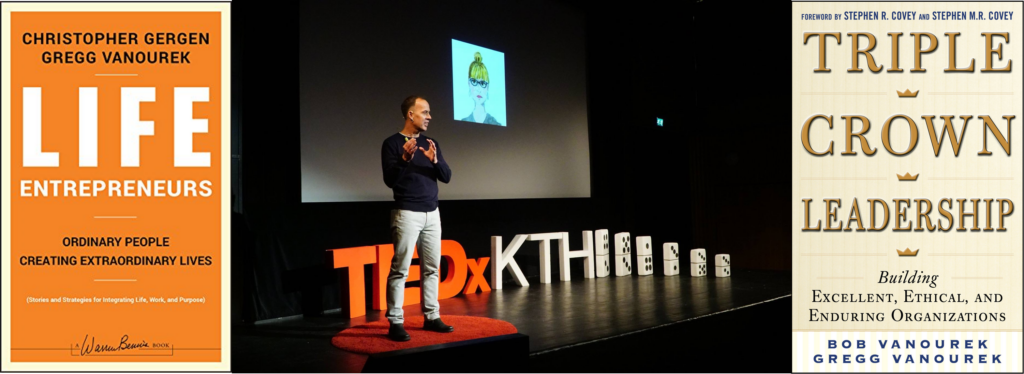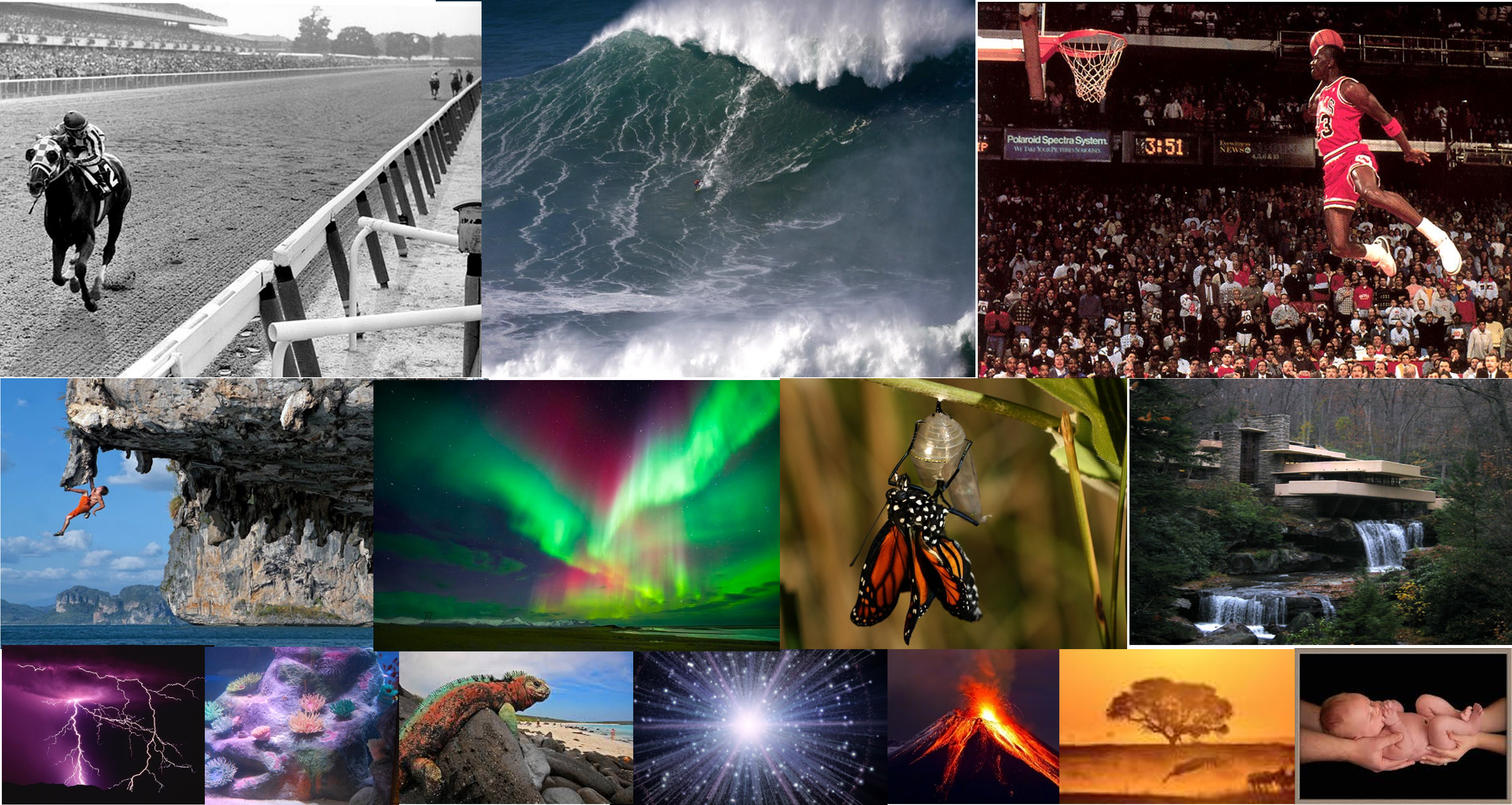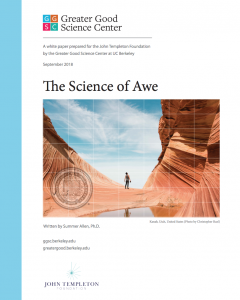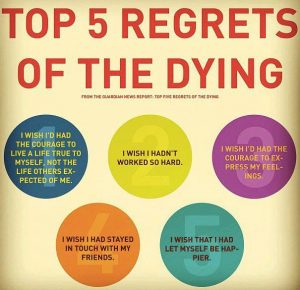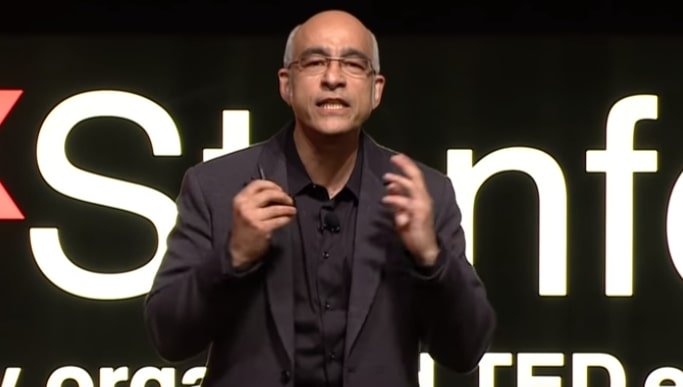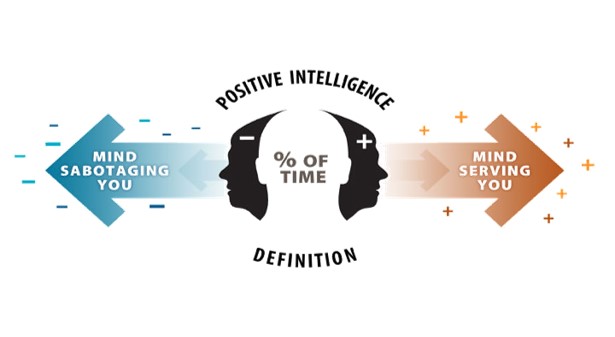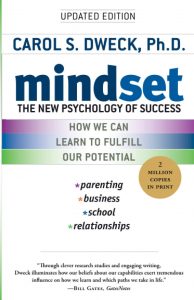One of the most insidious traps we can fall into in life and work is that of complacency—a state of easy contentment, with a lack of concern about or awareness of problems or risks. Complacency can prevent us from recognizing risks, trying harder, and making improvements.
Examples abound. We can be complacent about our health—or the health of our loved ones. Or complacent about our relationships. About our work, team, leadership, or organization. Complacent about our democracy and planet.
How to know when we’ve fallen into the complacency trap?
11 Signs of Complacency
When we’re complacent, we:
- Take things for granted
- Have too much routine, making things feel monotonous
- Stick to what we know
- Are too comfortable too often
- Stay in our comfort zone
- Start to “phone it in”
- Stop learning and growing
- Begin losing our ambition
- Resist change
- Avoid risk
- Start taking the path of least resistance
Author Brendon Burchard warns us about “the comfortable life:
“…over time, in the comfortable life, something stirs within; maybe not a frustration but something in the sense of restlessness. That restlessness is a feeling or sense that maybe there is something more.”
-Brendon Burchard
The Problem with Complacency
There’s nothing wrong with comfort and satisfaction per se. These are good things, and we want them in our lives. The problem is when we have too much of them and lose our zest for life and our inner fire to go after our dreams.
Complacency can:
- sap our motivation
- lead to inaction when action is warranted
- prevent us from making needed improvements
- reduce our initiative and sense of hope
- lead to mediocrity
- rob us of future opportunities and benefits
- derail our career
- lead us to a “default life”
In their excellent new book, Who Do You Want to Be When You Grow Old? The Path of Purposeful Aging, Richard Leider and David Shapiro warn of living what they call a “default life”:
“Just floating along from one year to the next, accepting things as they present themselves without question or intention, is a surefire recipe for dissatisfaction and despair in later life. Living the default life is… living a life that isn’t really of our own choosing. It’s living a life that inevitably gives rise to questions like ‘Where did all the time go?’ ‘How did my life pass so quickly?’ and ‘Why did I squander my one precious opportunity for living?’”
-Richard Leider and David Shapiro
What to Do About It
Fortunately, there are many things we can do to avoid or escape the complacency trap. Here’s a punch list:
Start acting with urgency. Like our time counts. Because it does.
Leverage deliberate agitation. Engage in what Tyler Hakes calls “deliberate agitation” (like shaking a snow globe). He writes:
“You let things settle into place just long enough and then shake them up. Watch to see if they fall into the same patterns or if something new and better emerges…. You deliberately and intentionally question things and change them before they become a problem. You remain vigilant in trying to improve so that way you don’t fall into the trap of complacency that leads to eventual failure.”
-Tyler Hakes
Dream big. We should think expansively about all we want to do in our lifetime in different areas—family, relationships, career, education, impact, travel, and more. When we do that, we feel the wondrous and mystical pull of our deepest aspirations.
Step out of our comfort zone. Too often, fear holds us back from venturing forth and risking ourselves. When we push ourselves, take risks, and dare to have adventures, our blood races and we start to feel awake and alive again.
Challenge ourselves to strive for a BHAG—a “big, hairy audacious goal.” This can be a life goal or a work goal, but a true BHAG should take our breath away with its audacity.
“…there is a difference between merely having a goal and becoming committed to a huge, daunting challenge—like a big mountain to climb…. Like the moon mission, a true BHAG is clear and compelling and serves as a unifying focal point of effort—often creating immense team spirit. It has a clear finish line, so the organization can know when it has achieved the goal; people like to shoot for finish lines. A BHAG engages people—it reaches out and grabs them in the gut.”
-Jim Collins and Jerry Porras in Built to Last
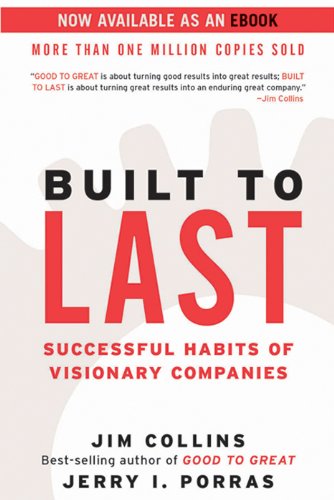
Calendarize time to work on the most important activities that will ensure we make progress on our top goals. That way, we can not only develop good and productive habits but also become the sort of person who consistently gets big stuff done.
Enlist an army of support. Consider recruiting an “accountability partner”—someone who can help keep us on track (such as a training buddy or someone willing to receive regular progress reports).
Identify and remove barriers to change. When we’re stuck, it’s easy to become complacent. We’re good at acclimatizing ourselves to a new situation. So get to work on identifying the major obstacles to progress and how to overcome them.
Notch short-term wins on meaningful work to build momentum. Draw on what researchers call the “progress principle”:
“…of all the positive events that influence inner work life, the single most powerful is progress in meaningful work; of all the negative events, the single most powerful is the opposite of progress—setbacks in the work. We consider this to be a fundamental management principle: facilitating progress is the most effective way for managers to influence inner work life. Even when progress happens in small steps, a person’s sense of steady forward movement toward an important goal can make all the difference between a great day and a terrible one.”
-Teresa Amabile and Steven Kramer in The Progress Principle
Take full responsibility. Be what my co-author, Christopher Gergen, and I call a “life entrepreneur.” We thrive when we take ownership of our life and recognize our agency—when we take our life back. Life entrepreneurs create opportunities for themselves. They bring their dreams to life. They intentionally craft a good life with good work.
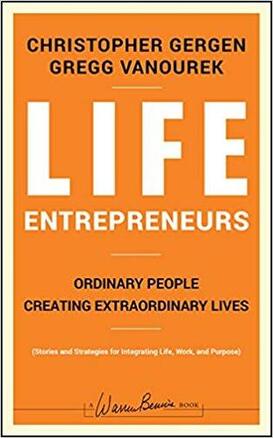
Get clear on our personal purpose, values, and vision:
- Our purpose is why we’re here. It’s what gives us a sense of meaning and significance—often by connecting with and serving others.
- Our values are what’s most important to us—our core beliefs and principles that guide our decisions and behavior.
- And our vision is what we aspire to achieve in the future—and what success looks and feels like for us.
Build vitality. We feel better and achieve more when we develop physical, mental, emotional, and spiritual health and wellness. When we’re intentional about productive and energizing habits, rituals, and routines.
Let go of limiting beliefs. Too often, we’re our own worst enemy. We’ve placed ourselves in a mental prison of judgment, negativity, and rumination. We have the power to upgrade our mental operating system, which will help us break the chains of complacency.
Set and maintain high standards. We tend to rise or fall to the standards we set. We often do better with deadlines, accountability, and high standards of personal and professional excellence.
Related Traps & Articles
The complacency trap is common, and it can be deeply damaging. It’s also accompanied by several associated traps:
- drifting through life
- settling for “good enough” and accepting significantly less than what we want or deserve
- avoiding hard situations, people, or truths
- being indecisive
- postponing happiness and deferring dreams
Final Thoughts
The complacency trap can rob us of quality time and experiences as well as passion and achievement. It can be tricky because we do want satisfaction and serenity, and not a life of frenetic striving and hair-on-fire busyness and hustle.
Somewhere in between, there’s a healthy place of commitment and urgency to live and work purposefully, achieve worthy things, serve others, and cherish our days, not squandering our time in a cool cloud of complacency.
Wishing you well with it—and let me know if I can help.
–Gregg Vanourek

Reflection Questions
- To what extent has complacency crept into some aspects of your life and work (or that of your friends, colleagues, or organization)?
- What will you do to regain the clarity, motivation, resolve, and urgency to get out of this trap?
Tools for You
- Quality of Life Assessment so you can discover your strongest areas and the areas that need work, then act accordingly.
- Traps Test (Common Traps of Living) to help you identify what’s getting in the way of your happiness and quality of life
- Personal Values Exercise to help you clarify what’s most important to you
Related Articles
- “Are You Getting Complacent? 17 Signs“
- “The Problem with Complacency“
- “This Is How to Avoid Complacency“
- “Taking Stock of Your Quality of Life“
Postscript: Quotations on Complacency
- “Complacency keeps you living a comfortable life… not the life you desire. Challenge yourself to do something different. Then, notice the new charged quality of your life.” -Nina Amir, author
- “The life you have left is a gift. Cherish it. Enjoy it now, to the fullest. Do what matters, now.” -Leo Babauta, author
- “Never be passive about your life… ever, ever.” -Robert Egger, from our LIFE Entrepreneurs book interview
- “The tragedy of life is often not in our failure, but rather in our complacency; not in our doing too much, but rather in our doing too little; not in our living above our ability, but rather in our living below our capacities.” -Benjamin E. Mays
- “I really try to put myself in uncomfortable situations. Complacency is my enemy.” -Trent Reznor
- “Complacency is a blight that saps energy, dulls attitudes, and causes a drain in the brain. The first symptom is satisfaction with things as they are. The second is rejection of things it as they might be. ’Good enough’ becomes days today’s watchword and tomorrow’s standard.” -Alex and Brett Harris
- “History and experience tell us that moral progress comes not in comfortable and complacent times, but out of trial and confusion.” -Gerald R. Ford
- “Without a sense of urgency, desire loses its value.” -Jim Rohn, author
- “There is no passion to be found playing small—in settling for a life that is less than the one you are capable of living.” -Nelson Mandela
- “So many people live within unhappy circumstances and yet will not take the initiative to change their situation because they are conditioned to a life of security, conformity, and conservatism, all of which may appear to give one peace of mind, but in reality nothing is more dangerous to the adventurous spirit within a man than a secure future. The very basic core of a man’s living spirit is his passion for adventure. The joy of life comes from our encounters with new experiences, and hence there is no greater joy than to have an endlessly changing horizon, for each day to have a new and different sun.” -Jon Krakauer, Into the Wild
- “Our best enemy is the one who challenges us, and so doing, teaches us to set out to discover our potentials, while our worst friend is the one who is numbing us and lulling us into complacency, always being consenting or acquiescent.” -Erik Pevernagie
- “Success is not guaranteed, it’s temporary.” -Frank Sonnenberg, author
- “As you move outside of your comfort zone, what was once the unknown and frightening becomes your new normal.” -Robin Sharma
- “By far the biggest mistake people make when trying to change organizations is to plunge ahead without establishing a high enough sense of urgency in fellow managers and employees.” -John Kotter, expert on leadership and organizational change
++++++++++++++++++++++++++++++
Gregg Vanourek is a writer, teacher, TEDx speaker, and coach on personal development and leadership. He is co-author of three books, including LIFE Entrepreneurs: Ordinary People Creating Extraordinary Lives (a manifesto for living with purpose and passion) and Triple Crown Leadership: Building Excellent, Ethical, and Enduring Organizations (a winner of the International Book Awards). Check out his Best Articles or get his monthly newsletter. If you found value in this article, please forward it to a friend. Every little bit helps!







